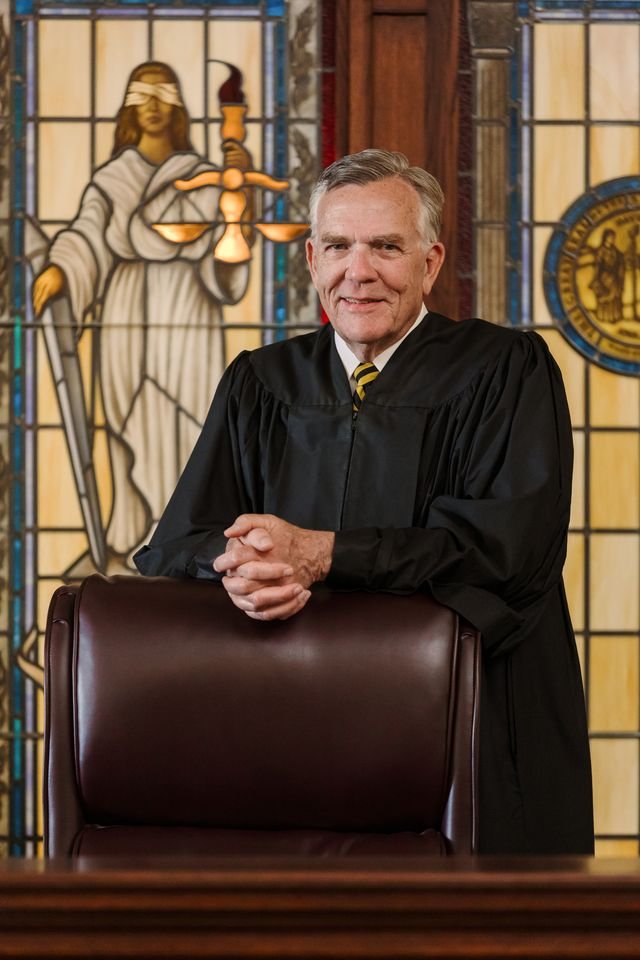 Retired trial judge, Rusty Duke, came to the Hoffman Process on the advice of his wise, eleven-year-old granddaughter. Her father, Rusty’s son, had returned home happier after his time in California.
Retired trial judge, Rusty Duke, came to the Hoffman Process on the advice of his wise, eleven-year-old granddaughter. Her father, Rusty’s son, had returned home happier after his time in California.
While swinging on a porch swing together, Rusty and his granddaughter were talking. She said she thought that Rusty, her grandfather, was happy, but Rusty would return from California even happier, just like her dad had. Rusty listened to her wise counsel. Just two days later, he registered for the Process.
The prominent theme running through Rusty’s story is happiness. He was a happy child. He has a good life. And, Rusty did, indeed, return home even happier.
One of the most important realizations students have during the Process is that we are not our patterns. Before coming to the Process, Rusty didn’t know he had patterns. Realizing that we have patterns and that we aren’t those patterns can open the door to a deeper discovery of life and who we are. In Rusty’s words, Hoffman “brings a reality to life. It helps you to stop and listen and consider where you are, who you are, and what you are.”
During his week at the Process, Rusty crossed the ‘bridge’ into a newfound sense of self-love, shepherded by the love he felt from his Process-mates. He’d never really heard anyone talk about self-love before. Rusty left California and returned home, leaving behind the negative voices in his head that can keep self-love at bay.
We hope you enjoy this heartwarming conversation with Judge Rusty Duke and Drew.
Rusty Duke is a retired trial judge, married 52 years, with three children and nine grandchildren. He lives in Greenville, North Carolina, and is ‘Of Counsel’ at a local law firm.
Duke enjoys visiting with his children and grandchildren and traveling with his family and friends. He enjoys being involved in community activities and service. Rusty enjoys speaking to various local civic groups and caring for a local camp. He recently published his first book, “Call Your Next Case: My Stories.”
Podcast: Download (Duration: 33:32 — 30.7MB)
Subscribe: RSS
Blackbeard the Pirate
Edward Teach (or Thatch), better known as Blackbeard (c. 1680 – 22 November 1718)
Blackbird’s buried treasure chest
Blackbeard House in Beaufort, NC, circa 1700
The Quadrinity
Spiritual Self, the body, the intellect, and the emotional self.
Patterns:
Patterns are typically negative, compulsive, automatic, and emotionally charged. They can be direct copies of parental behaviors, rebellions against them, or reactions to them. Read more about patterns here.
Recylcing
Transforming negative patterns into positive alternatives requires following the Cycle of Transformation. The tool used to transform patterns is recycling.
The Hoffman App
 Your journey to discover your authentic self does not end after completing a Hoffman course. Rather, it is just the beginning. The Hoffman App is here to support you as you continue this journey, today and far into the future. The app is full of guidance, practices, and visualizations to inspire and help you achieve your personal goals. We like to think of this app as “Hoffman in your pocket.” It’s available at the App Store.
Your journey to discover your authentic self does not end after completing a Hoffman course. Rather, it is just the beginning. The Hoffman App is here to support you as you continue this journey, today and far into the future. The app is full of guidance, practices, and visualizations to inspire and help you achieve your personal goals. We like to think of this app as “Hoffman in your pocket.” It’s available at the App Store.